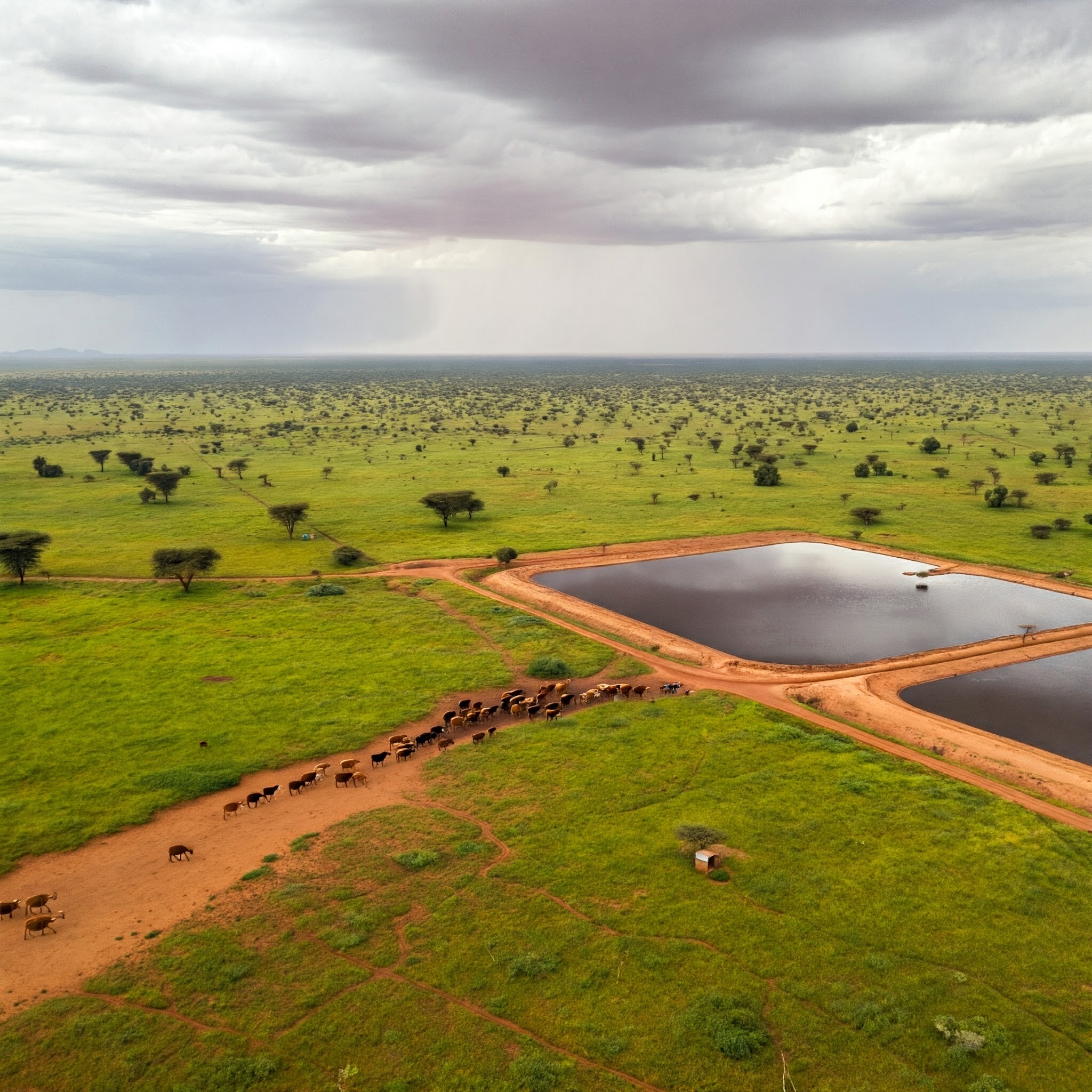
Abstract
This article is based on the findings of research and studies conducted by the Africa Label Group (ALG) in the Sahel countries over the past five years, complemented by observations from our field teams operating in the region. Despite being plagued by insecurity and terrorism, communities in the Sahel face challenges that are often recurrent and predictable. This article posits that effective management of water resources, agriculture, and livestock is essential for stability, with these sectors requiring a governance framework tailored to local realities. The collaborative efforts of ALG’s international and regional partners—including UNDP, PartnersGlobal, IRI, Heifer International, UNESCO, the World Bank, and the governments of Burkina Faso, Mali, Niger, Senegal, Guinea, and Chad—are crucial in addressing the multifaceted issues facing the Sahel.
Introduction
The Sahel region, characterized by its arid climate and socio-political fragility, has become a focal point for humanitarian and development efforts aimed at fostering stability. The interplay between water scarcity, agricultural productivity, livestock management, and governance plays a pivotal role in shaping the livelihoods of millions. This article explores how these sectors can be harmonized to promote resilience among communities in the Sahel, ultimately contributing to regional stabilization.
Water Management: A Fundamental Resource
Water is the lifeblood of the Sahel, underpinning both agricultural and livestock activities. However, the region faces significant challenges related to water scarcity due to climate change, population growth, and unsustainable practices. Effective water management strategies are essential for ensuring that communities have access to this vital resource. This includes the development of rainwater harvesting systems, rehabilitation of traditional water sources, and investment in irrigation technologies.
Recommendations for Water Governance
- Community-Based Water Management: Empower local communities to manage water resources sustainably through participatory governance structures.
- Investment in Infrastructure: Prioritize investments in water infrastructure, such as dams and reservoirs, to enhance water storage capacity.
- Cross-Border Cooperation: Foster collaboration among Sahelian countries to manage shared water resources effectively, particularly in transboundary river basins.
Agriculture: Ensuring Food Security
Agriculture is not only a source of food but also a critical economic activity in the Sahel. However, the sector is vulnerable to climate variability and insecurity. Implementing resilient agricultural practices, such as agroecology and climate-smart agriculture, can significantly enhance food security and livelihoods.
Strategic Agricultural Interventions
- Diversification of Crops: Encourage farmers to diversify their crops to mitigate risks associated with climate change and market fluctuations.
- Training and Capacity Building: Provide farmers with training on sustainable practices and access to modern agricultural technologies to improve productivity.
- Market Access: Develop infrastructure and policies that facilitate farmers’ access to local and regional markets.
Livestock Management: Supporting Pastoral Communities
Livestock is a vital asset for many communities in the Sahel, providing sustenance, income, and cultural identity. However, pastoralists face challenges such as land degradation, conflicts over resources, and climate change. Sustainable livestock management practices are essential for maintaining the health of both the animals and the ecosystems they inhabit.
Livestock Sector Recommendations
- **Pastoralist Rights and Land Tenure**: Recognize and protect the land rights of pastoralist communities to reduce conflicts and ensure sustainable grazing practices.
- **Animal Health Programs**: Implement vaccination and veterinary services to improve livestock health and productivity.
- **Integration of Livestock and Crop Farming**: Promote integrated farming systems that enhance synergies between crop and livestock production.
Governance: A Coordinated Approach
Effective governance is critical for the successful management of water, agriculture, and livestock. Governance structures must be inclusive, transparent, and responsive to the needs of local communities. This requires a multi-stakeholder approach that includes government entities, civil society, and local populations.
Governance Enhancement Strategies
- Decentralization of Governance: Empower local governments to make decisions that directly affect their communities, fostering accountability and responsiveness.
- Strengthening Institutions: Invest in the capacity of local institutions to manage resources and implement policies effectively.
- Conflict Resolution Mechanisms: Establish dialogue platforms that facilitate conflict resolution among different user groups, particularly in resource-scarce areas.
Conclusion
The stabilization of the Sahel necessitates a comprehensive approach that integrates water management, agricultural development, and livestock management within a robust governance framework. The insights drawn from ALG’s research and collaborative efforts with international partners provide a roadmap for addressing the underlying challenges faced by communities in the region. By prioritizing these key sectors, stakeholders can work towards a more resilient and stable Sahel.
Acknowledgments
The authors wish to acknowledge the contributions of ALG’s international partners and local stakeholders in Burkina Faso, Mali, Niger, Senegal, Guinea, and Chad.
